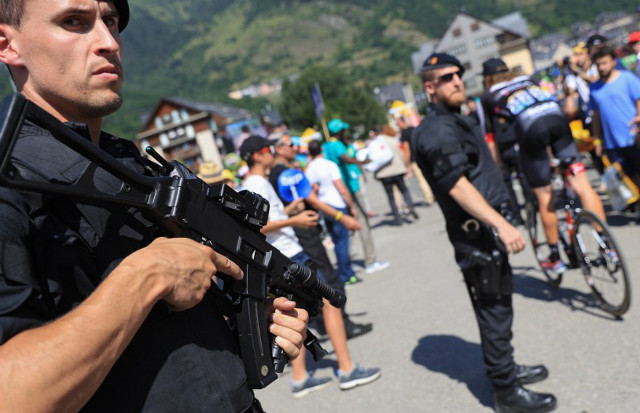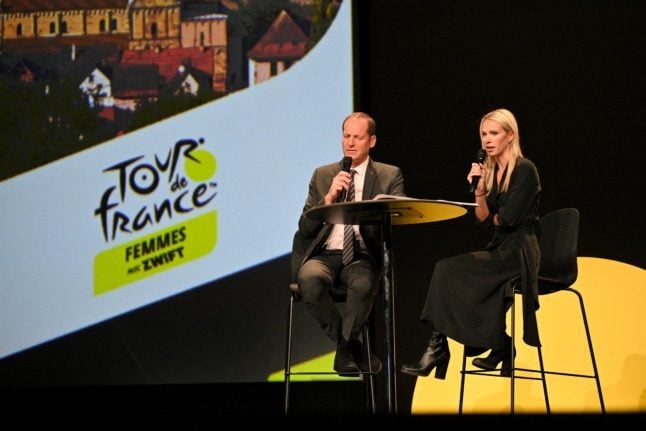 Photo: AFP
Photo: AFP
TOUR DE FRANCE
Elite French anti-terror police to follow Tour de France riders
A commando unit of elite counter-terrorism officers will be among a deployment of 23,000 police ensuring safety at the Tour de France, which begins in Dusseldorf on Saturday, the French interior ministry has said.
Published: 28 June 2017 16:08 CEST

Photo: AFP
But while the jihadist terror threat is high and France remains in a state of emergency, Tour director Christian Prudhomme insists that road accidents are biggest danger to the smooth running of the Tour.
“When 12 million people line the roadside, vehicles pass, there are cyclists in front and behind, you have to be careful that enthusiasm doesn't eliminate attentiveness,” Prudhomme told AFP.
Even so, for the second year running, an elite GIGN unit — which specialises in counter-terrorism and hostage rescue — will be mobilised to tackle any potential terror threat to the three-week Tour which covers 3,500km across the country during July.
READ ALSO:
The unit will be divided into two teams, one following the Tour on the road, the other by helicopter, once the world's most prestigious cycle race enters France after two stages taking in Germany, Belgium and Luxembourg.
Tour organisers ASO have “similar agreements with authorities” in those countries to ensure security, said Prudhomme, while acknowledging that “the French special forces have their own contacts with special forces in foreign countries”.
Dog teams trained in sniffing out explosives will also patrol the departure and arrival villages during each stage, the ministry added.
And a special measure will likely be put in place for the Tour's final stage finish on the world-famous Champs Elysees in Paris on July 23, where the city prefect will be able to create a “protection or security zone” that would allow authorities to restrict access to the area to individuals or groups.
Last year, France was on high alert for possible terror attacks as it hosted football's European Championships and the Tour.
But while those both passed off smoothly, 86 people were killed and hundreds of others injured when a lone militant drove a lorry into crowds celebrating the French national Bastille Day holiday on the night of July 14 in Nice.
Url copied to clipboard!


 Please whitelist us to continue reading.
Please whitelist us to continue reading.
Member comments